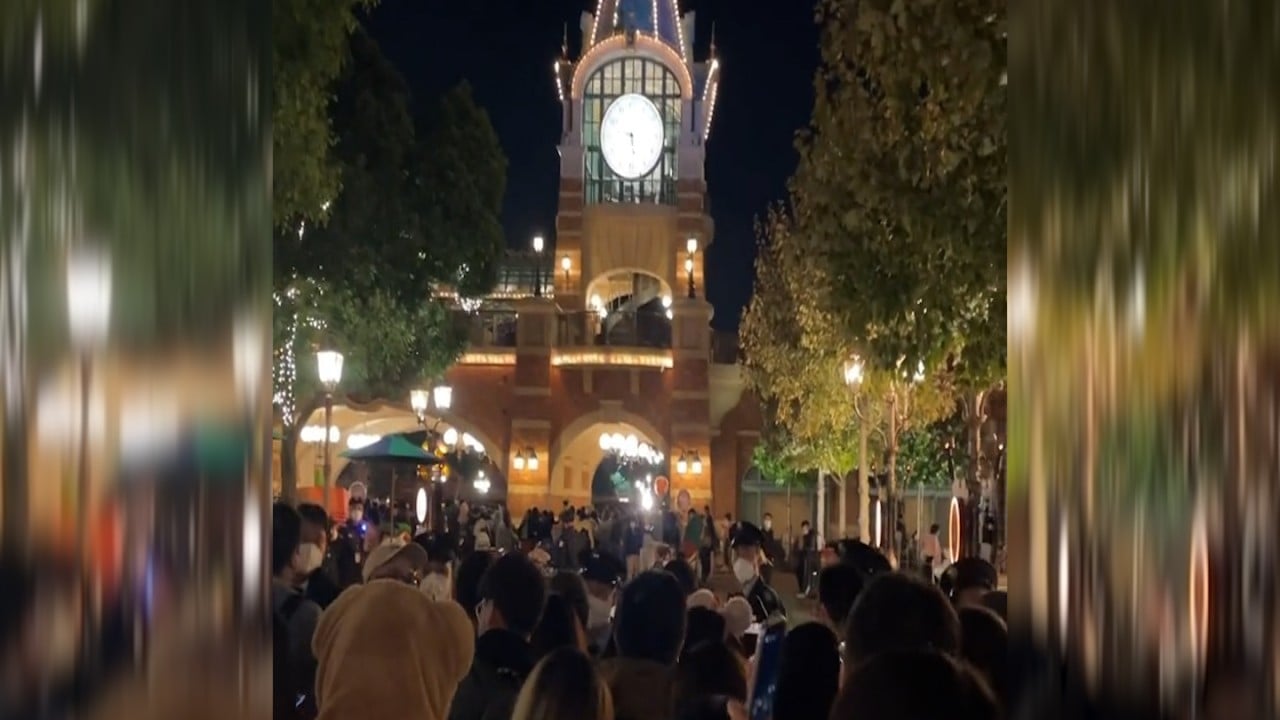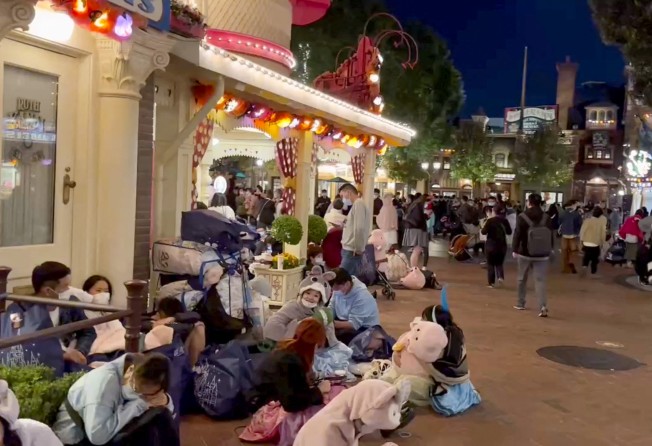
01:29
Thousands stuck inside Shanghai Disney Resort after snap Covid lockdown

The chorus of people inside and outside mainland China questioning Beijing’s zero-Covid policy is growing.
Two incidents in particular show the enormous social and economic costs of implementing the policy and the fear it evokes in the public.
In Shanghai, Disneyland is closed again, trapping more than 10,000 visitors until they test negative for the coronavirus three times in three days.
Meanwhile in Zhengzhou, central China, at the world’s biggest iPhone assembly plant, workers have been scaling walls and walking along highways to escape an outbreak at the factory.
As social media posts of the exodus surfaced on the weekend, factory owner Foxconn tried to salvage the situation with extra pay for workers who stayed behind, and Zhengzhou authorities sent buses to pick up people who wanted to leave.
In both cases, the businesses will have to shoulder the extra costs and operational losses, only further undermining investor confidence.
China has repeatedly cited the high death toll from Covid-19 in other countries to support its case that its zero-Covid strategy is crucial to saving lives, especially now that winter is coming.
However, protracted lockdowns in many cities, such as Urumqi in Xinjiang and Xining in Qinghai, and many other places cast doubt on the effectiveness of these kinds of restrictions in containing the spread of the virus.
Many mainlanders also question the accuracy of official case numbers as they notice more people around them with infections.
It is impossible for the central government to verify all data given the size of the country. Local governments also have a strong incentive to under-report figures since many officials were punished for not controlling outbreaks effectively.
So what are the reasons for keeping the controversial policy at such a high cost?
Before the Communist Party’s national congress last month, many analysts said the measures were meant to avoid a massive surge of cases that could show the party in a bad light. The control measures were also convenient tools to maintain social stability for the politically sensitive period.
But the congress is over and there is still no sign of relaxation.
President Xi Jinping’s work report delivered at the opening of the congress could give some clues as to why. In the report, the zero-Covid policy was mentioned just twice and those brief mentions was hailed as an achievement that greatly improved China’s international reputation.
If zero Covid is a great achievement, it would be difficult for any member of Xi’s new core team to take the political risk to suggest easing it because doing so would raise the possibility of the strategy appearing to be a wasted effort and could undermine Xi’s image.
Some mainlanders and overseas experts are also asking whether the measures are meant to control people, rather than stop the spread of the virus.
In an interview with Hong Kong newspaper Ming Pao, former Singaporean foreign minister George Yeo, who also did a stint as minister of health, went so far as to suggest that the measure could be a preparation for war.
That suggestion is highly questionable but the restrictions are no doubt a convenient method to control the movements of mainland residents.
After repeated lockdowns in three the past three years, local officials are familiar with how to efficiently seal off a neighbourhood, or even a city.
A sophisticated system combining technology and traditional grass-roots party bodies, such as neighbourhood committees, is already put in place to track and restrict where every person goes.
It would be hard for Beijing to let go of all of these tools given that maintaining security is its top priority. Some measures are likely to stay even after the zero-Covid policy is finally removed.
However, putting every individual under a shadow that means his or her movement can be restricted any time, even on a day out to Disneyland, will not help foster the vibrant environment that encourages innovation, investment and consumption – the kinds of qualities that will be crucial for Xi’s vision for a great rejuvenation of the country.
And if discontent about the restrictions continues to build in the public and among local cadres, the efforts could be counterproductive to maintaining stability.